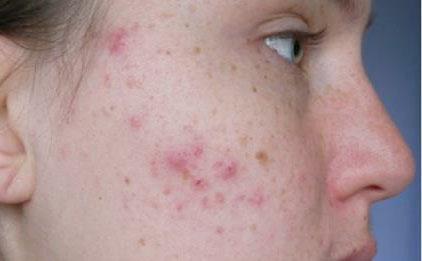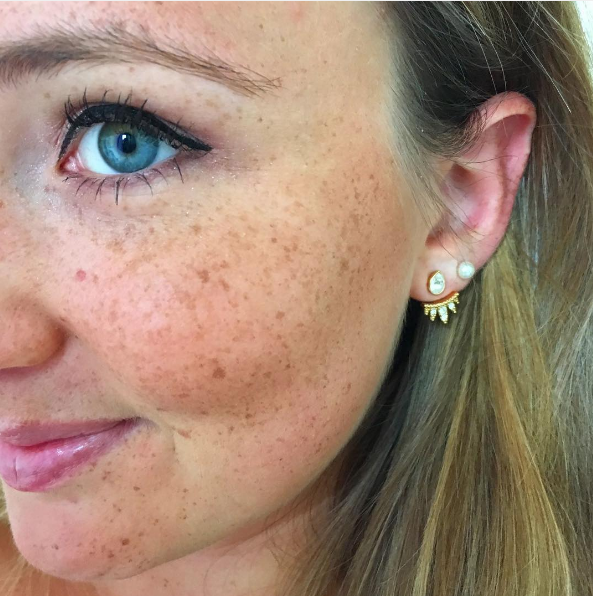Roaccutane: How controversial acne wonder-drug linked to suicide actually changed my life
Lifestyle writer Rachel Hosie suffered from acne both in her teens and her early 20s. Then she tried Roaccutane and hasn’t looked back

Your support helps us to tell the story
From reproductive rights to climate change to Big Tech, The Independent is on the ground when the story is developing. Whether it's investigating the financials of Elon Musk's pro-Trump PAC or producing our latest documentary, 'The A Word', which shines a light on the American women fighting for reproductive rights, we know how important it is to parse out the facts from the messaging.
At such a critical moment in US history, we need reporters on the ground. Your donation allows us to keep sending journalists to speak to both sides of the story.
The Independent is trusted by Americans across the entire political spectrum. And unlike many other quality news outlets, we choose not to lock Americans out of our reporting and analysis with paywalls. We believe quality journalism should be available to everyone, paid for by those who can afford it.
Your support makes all the difference.It’s a drug that’s as renowned for its acne-curing powers as its dangerous side-effects: yes, isotretinoin – better known as its brand name, Roaccutane – is nothing if not controversial.
Tabloid papers love the stories of extreme cases – there have been tales of teenagers and young adults developing depression, losing all their hair and even committing suicide after taking the drug.
But isotretinoin drastically changed my life, and all for the better.
The drug is not one you can acquire easily – you need a referral from your GP to see a dermatologist, and only then once you’ve had a thorough consultation would you be prescribed isotretinoin.
Due to its mood-altering side-effects – not to mention the scary stories we’ve all heard – dermatologists won’t prescribe isotretinoin to anyone who doesn’t seem completely stable or whose acne isn’t severe enough.
A couple of years ago, mine absolutely was.
Like many teenagers, I started getting spots when I hit puberty – the joys of adolescence, eh? But my skin was worse than most of my friends, and it was getting me down.
I decided to go to the doctor, who proceeded to make me – a sensitive, insecure 15-year-old – cry by telling me I had “severe acne”. Thanks, Doc.
During my teenage years, I tried everything: special facial washes, topical ointments, antibiotics, but nothing worked.

The next step up was to try a particular form of the Pill, Dianette, which, to my amazement, actually cleared up my skin! After taking it for a year, however, my GP advised I come off it because I was at increased risk of blood clots.
So I stopped, and not only did my acne return but it did so in a big way – what was once just a case of teenage spots had turned into full-blown adult acne.
The two types are very different: Teenage acne tends to affect the T-zone, whereas the adult form takes hold more on the cheeks and chin. Some people never suffer from either, others develop one form but not the other, and then there are the lucky few of us who are blessed with both.
As a student in my early 20s, acne was seriously affecting my confidence.
I’d sit in seminars looking at all my friends and realise I was the only one with skin that bad. When my pals complained about the occasional pimple I’d feel so envious – what I’d have given to have just the rare spot!
As my skin worsened, I wore more and more makeup – it didn’t look good, but it looked better than what was underneath. No one knew how bad my skin really was. (Instagram filters also help a lot.)
I was soon to graduate and just didn’t want to enter the professional world with a face that resembled a pizza – you can hide most of your body, but not your face. I wanted to look professional and grown-up, and be taken seriously. That's harder with acne.
So I eventually decided enough was enough and went to see a dermatologist, knowing there was one option I was yet to try: isotretinoin.
It was the only thing left that might possibly free me from the shame I felt about my own face and I was adamant I wanted to try it.
The stats speak for themselves: isotretinoin has a 95 per cent success rate in clearing up acne in four to six months, and for about 70 per cent of people, skin stays clear for life afterwards.

Aside from the mood alterations, isotretinoin has been known to have harsh side-effects including extremely dry skin, sensitivity to sunlight and weariness.
As a student in her final year of uni, I was of course concerned about how the drug might affect my performance in my finals if it was going to make me weary and depressed, but I couldn’t not give it a shot. I was desperate.
Fortunately, the dermatologist agreed I seemed like a strong woman with no mental health issues so deemed me not at risk of developing depression. He also reassured my mother that the proportion of people who do have such issues are extremely few and far between.
Isotretinoin is a vitamin A derivative that you take as a daily pill. It works by both reducing the size of the oil glands and reducing the amount of oil they produce, and for that reason, a lot of people find their skin becomes incredibly dry when taking the drug.
I was on the lowest dosage, but the worst side-effect I experienced was slightly chapped lips. No depression, no mood swings, no exhaustion. I was fine!
As the weeks turned to months, my acne started disappearing, and I couldn’t believe it. Every day when I looked in the mirror, I couldn’t help but smile upon seeing the improvements.
Six months on, my skin was clear and I didn’t have any acne scarring either. My dermatologist suggested I stop taking the drug, so I tentatively did – I was terrified about the acne returning though.
But it didn’t.
It's not an understatement to say my life has changed thanks to no longer having acne.
I’m more confident, I walk down the street with my head held high and I rarely wear any makeup on my skin. When I tell new friends I used to have acne they’re always aghast as you’d never be able to tell.
I simply don’t have to worry about my skin anymore which frees up brain space for, well, everything else.
Of course, there are far more important things in the world than appearances, but how you look affects how you feel, and that affects everything you do.
The results of isotretinoin are just incredible. Whilst it may not be for everyone, and it isn’t a drug to take lightly, isotretinoin has been, for me, a marvel.
Join our commenting forum
Join thought-provoking conversations, follow other Independent readers and see their replies
Comments